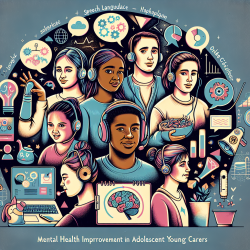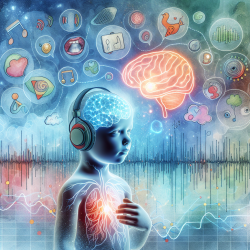As a practitioner focused on creating positive outcomes for children, understanding the relationship between parental health and adolescents' wellbeing is crucial. The study titled Adolescents' wellbeing and functioning: relationships with parents' subjective general physical and mental health offers valuable insights that can inform your practice.
This research, conducted with a sample of 1,194 adolescents and their parents, reveals significant correlations between parental health and adolescents' health-related quality of life (HRQoL). Here are the key findings and their implications for your practice:
- Parental Mental Health: Better parental mental health is strongly associated with higher adolescent physical and psychological wellbeing, improved moods and emotions, stronger parent-child relationships, better school environment, and greater financial resources.
- Parental Physical Health: While parental physical health primarily influences adolescents' self-perception, it does not significantly affect other HRQoL dimensions.
- Social Support: High levels of social support are positively correlated with better HRQoL across various dimensions, highlighting the importance of a supportive network for adolescents.
- Gender and Age: Male adolescents and younger adolescents generally report better HRQoL, indicating the need for gender-specific and age-appropriate interventions.
- Chronic Health Care Needs: Adolescents without chronic health care needs tend to have better HRQoL, underscoring the additional challenges faced by those with ongoing health issues.
To integrate these findings into your practice, consider the following strategies:
- Assess parental mental health as part of your routine evaluations, as it significantly impacts adolescents' wellbeing.
- Promote social support networks for both parents and adolescents to buffer the effects of poor parental health.
- Tailor interventions to address the specific needs of male and female adolescents, and consider age-specific approaches.
- Provide additional support for adolescents with chronic health care needs to enhance their HRQoL.
By leveraging these insights, you can better support the wellbeing and functioning of adolescents in your care. For more detailed information, you can read the original research paper Adolescents' wellbeing and functioning: relationships with parents' subjective general physical and mental health.










